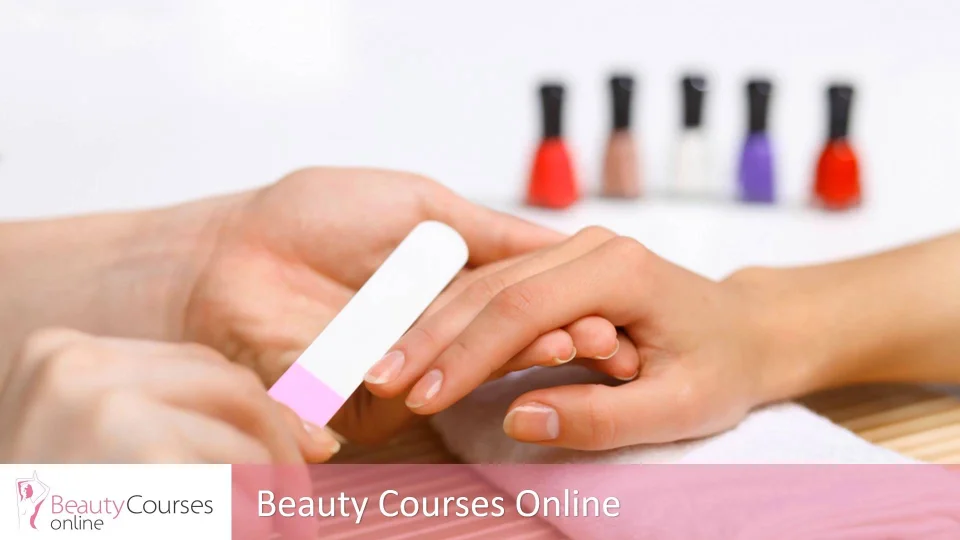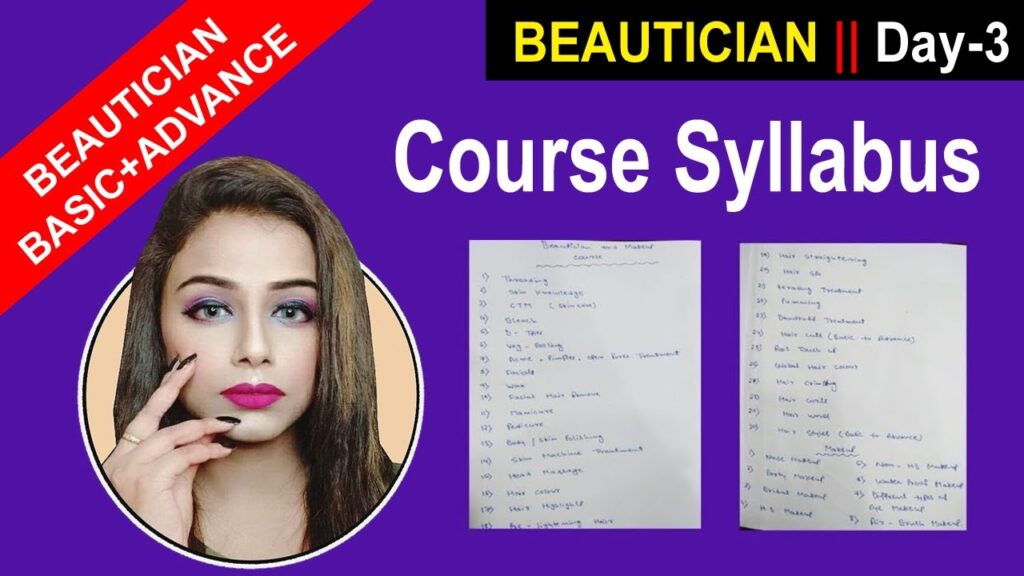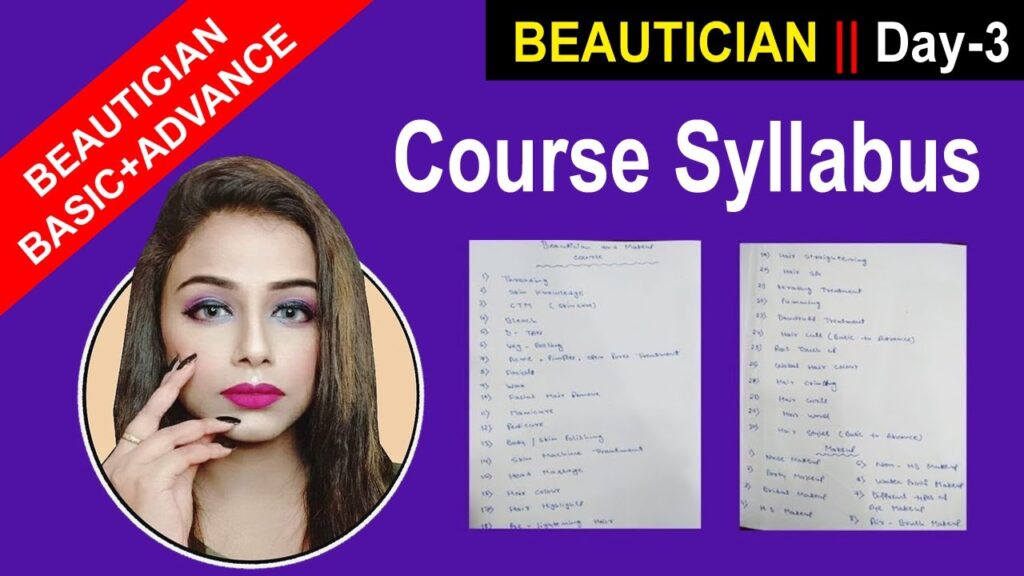Are you interested in pursuing a career in the beauty industry? If so, you may be wondering how much online beauty courses typically cost. Look no further! Centre of Wellness provides a variety of beauty training courses that can be conveniently accessed online. Whether you’re interested in learning about skincare, makeup techniques, or nail art, Centre of Wellness offers courses to suit your individual interests. By exploring their courses at https://beautytrainingcoursesonline.com/courses-overview/, you’ll be able to gain a better understanding of the average costs associated with online beauty courses. With flexible scheduling and expert instructors, Centre of Wellness is the perfect platform to kickstart your beauty education journey.
Factors Affecting the Cost of Online Beauty Courses
When considering enrolling in an online beauty course, it’s important to understand the various factors that can affect the overall cost. By evaluating these factors, you can make an informed decision about the best course for your needs and budget. Here are some key factors to consider:
Course Duration
One of the main factors that can influence the cost of an online beauty course is its duration. Courses that have a longer duration usually require more extensive content and materials, which can result in a higher price. On the other hand, shorter courses may be more affordable but might not cover as much material or offer as in-depth instruction.
Level of Certification
The level of certification offered by the online beauty course can also impact its cost. Courses that provide more advanced certifications, such as advanced-level or specialized certifications, may have higher prices due to the additional knowledge and skills taught. Beginner-level courses, on the other hand, are typically more affordable.
Course Content and Materials
The content and materials included in the online beauty course can also affect its cost. Courses that offer comprehensive content, including video tutorials, downloadable resources, and interactive quizzes, may be priced higher than courses with less extensive content. It’s essential to evaluate the course materials and ensure they align with your learning goals and preferences.
Interactive Features
online beauty courses that offer interactive features, such as live webinars, discussion forums, or virtual labs, may have a higher price tag. These interactive features enhance the learning experience and allow for more hands-on practice, which can contribute to a higher course cost. However, these features can also provide valuable opportunities for engagement and collaboration with other students and instructors.
Accreditation
Accreditation is another factor that can affect the cost of an online beauty course. Accredited courses have met certain standards of quality and are recognized by industry professionals and employers. While accredited courses may be priced higher, they offer the assurance of a reputable and recognized certification upon completion.
Tutor Support
The level of tutor support provided during an online beauty course can also impact its cost. Courses that offer personalized feedback, one-on-one consultations, or access to dedicated tutors usually come at a higher price. This additional support can be valuable, especially for individuals who prefer a more guided and individualized learning experience.
Specialization or Niche
Online beauty courses that specialize in a particular area or niche, such as bridal makeup or organic skincare, may have higher costs. This is because specialized courses often require expertise from industry professionals and industry-specific resources. If you have a particular interest or career goal within the beauty industry, a specialized course may be worth the investment.
Additional Resources
Some online beauty courses may provide additional resources, such as downloadable guides, reference materials, or access to industry events or workshops. These extra resources can enhance your learning experience and provide value beyond the core course content. However, they may also contribute to a higher course cost.
International Recognition
For individuals planning to work internationally or seeking employment opportunities abroad, it’s essential to consider the international recognition of the online beauty course. Courses that have international recognition may have higher costs due to the additional effort and resources required to meet global standards and requirements.
Platform or Website Fees
In some cases, online beauty courses may have additional platform or website fees. These fees are typically charged for the use of online learning platforms or technology infrastructure. While they may not be significant, it’s important to factor in these additional costs when evaluating the overall affordability of a course.
Considering these factors can help you assess the true value and cost-effectiveness of an online beauty course. Remember to prioritize your learning goals, preferences, and budget when making a decision.
Types of Online Beauty Courses
Online beauty courses cover a wide range of topics within the beauty industry. These courses cater to different interests and offer specialized knowledge and skills. Here are some common types of online beauty courses you may come across:
Makeup Courses
Makeup courses are designed to teach you the fundamentals of professional makeup application. They cover various techniques, from natural everyday makeup to glamorous evening looks. Makeup courses may also focus on specific areas such as bridal makeup, special effects makeup, or editorial makeup.
Skincare Courses
Skincare courses aim to provide a comprehensive understanding of skincare principles and practices. These courses cover topics like skin types, common skin concerns, skincare routines, and product knowledge. Skincare courses often include information on ingredient selection, skincare treatments, and facial therapy techniques.
Nail Technician Courses
Nail technician courses focus on the art and science of nail care and enhancement. These courses teach you how to perform manicures, pedicures, and nail extensions. Nail technician courses also cover nail anatomy, nail disorders, and creative nail art techniques.
Hair Styling Courses
Hair styling courses teach the foundational skills required for hairstyling and provide in-depth knowledge of various hair types, cutting techniques, and styling tools. These courses cover blowouts, updos, braiding, and other popular hairstyling techniques.
Beauty Therapy Courses
Beauty therapy courses combine various aspects of beauty and wellness. These courses may cover areas such as facials, body treatments, waxing, and makeup. Beauty therapy courses often provide a comprehensive understanding of client consultation, health and safety practices, and relevant legislation.
Cosmetic Science Courses
Cosmetic science courses delve into the scientific aspects of beauty products. These courses cover formulation techniques, ingredient selection, product safety, and regulatory guidelines. Cosmetic science courses are ideal for individuals interested in product development, quality control, or regulatory compliance.
Deciding on the specific type of online beauty course you want to pursue will depend on your interests, career goals, and prior knowledge in the field. Consider your strengths and areas of passion when choosing the right course for you.

This image is property of embed-ssl.wistia.com.
Average Cost Range for Online Beauty Courses
The cost of online beauty courses can vary significantly depending on the level of certification, duration, and specialization. Here’s a breakdown of the average cost range for different levels of courses:
Beginner-Level Courses: $50 – $300
Beginner-level courses designed for individuals with little to no prior experience in the beauty industry generally fall within the range of $50 to $300. These courses introduce fundamental concepts and techniques and are an affordable starting point for beginners.
Intermediate-Level Courses: $300 – $600
Intermediate-level courses cater to individuals with some experience or knowledge in the beauty industry. These courses may provide more in-depth instruction and cover advanced techniques. The cost of intermediate-level courses typically ranges from $300 to $600.
Advanced-Level Courses: $600 – $1,000
Advanced-level courses are intended for individuals with a solid foundation in the beauty industry and who want to refine their skills or specialize in a particular area. These courses may involve extensive practical assignments and assessments. The cost of advanced-level courses generally ranges from $600 to $1,000.
Specialized or Niche Courses: $200 – $2,500
Specialized or niche courses, such as courses focusing on bridal makeup or organic skincare, tend to vary widely in price. Depending on the level of specialization and the expertise of the instructors, these courses can range from $200 to $2,500 or more. Factors such as the course duration, materials provided, and additional resources may influence the cost of specialized courses.
It’s important to note that these price ranges are estimates and can vary depending on the course provider, geographic location, and other factors. When comparing prices, consider the value of the course in terms of its content, instructor expertise, and industry recognition.
Cheaper Alternatives
If you’re on a tight budget or looking for more affordable options, there are some alternative ways to pursue online beauty courses without breaking the bank. Here are a few options to consider:
Free Online Beauty Courses
Some online platforms or educational websites offer free beauty courses. While these courses may not provide the same level of certification or in-depth instruction as paid courses, they can still be a valuable resource for gaining basic knowledge and skills. Free courses can be a great starting point for beginners or those exploring the beauty industry before making a financial commitment.
Discounted Bundle Offers
Many course providers offer discounted bundle offers, where multiple courses are packaged together at a reduced price. This can be a cost-effective way to access a range of courses and broaden your knowledge and skills in different areas. Bundle offers often provide a significant discount compared to buying individual courses separately.
Promotional Offers and Sales
Keep an eye out for promotional offers and sales on online beauty courses. Course providers may occasionally offer discounted prices or special promotions during holiday seasons, annual events, or when launching new courses. Subscribing to newsletters or following social media pages of course providers can help you stay informed about any upcoming offers and secure the best deals.
By considering these cheaper alternatives, you can still pursue your passion for beauty and acquire valuable skills and knowledge without straining your budget.

This image is property of i.ytimg.com.
Financial Aid and Payment Options
If the cost of an online beauty course is a barrier for you, there are various financial aid and payment options available to help make your educational investment more manageable. Here are some options to explore:
Scholarships and Grants
Certain organizations, foundations, or institutions offer scholarships or grants specifically for beauty industry education. These financial awards are typically merit-based or need-based and can cover a portion or the entire course fee. Research and apply for available scholarships and grants that align with your educational goals and financial circumstances.
Payment Plans
Many course providers offer flexible payment plans that allow you to break down the course fee into installment payments over a specified period. Payment plans can help distribute the cost of the course more evenly and make it more affordable month by month. Be sure to inquire about the payment plan options available and any associated fees or interest rates.
Loan Options
In some cases, you may consider taking out a personal loan to cover the cost of an online beauty course. Personal loans can be obtained from banks, credit unions, or online lenders. Before considering this option, carefully evaluate the interest rates, repayment terms, and any associated fees. Ensure that repaying the loan won’t place excessive financial strain on you in the long run.
Employer Sponsorship
If you’re currently employed or plan to pursue a career in the beauty industry, check if your employer offers sponsorship or reimbursement for educational courses. Some employers may be willing to invest in their employees’ professional development and cover all or part of the course expenses. Discuss this opportunity with your employer and present the potential benefits of the course to support your request for sponsorship.
When exploring financial aid and payment options, it’s crucial to consider your overall financial situation and choose an option that aligns with your long-term financial goals. Be sure to research and compare different options before making a decision.
Factors to Consider When Choosing an Online Beauty Course
Choosing the right online beauty course can have a significant impact on your learning experience and career prospects. Here are key factors to consider when selecting a course:
Accreditation and Recognized Certification
Ensure that the online beauty course you choose is accredited by a reputable accrediting body or recognized by industry professionals and employers. Accreditation provides assurance that the course meets certain quality standards and that your certification will hold value in the beauty industry.
Course Curriculum and Content
Evaluate the course curriculum and content to ensure it aligns with your learning goals and interests. Look for courses that cover the specific skills and knowledge you want to acquire. Check if the course includes practical assignments, case studies, or assessments that will allow you to apply what you’ve learned.
Course Duration and Flexibility
Consider the duration of the course and whether it fits into your schedule and availability. Some courses may have fixed start and end dates, while others offer self-paced learning. Choose a course with a duration that suits your learning style and time constraints.
Interactive Features and Support
Interactive features, such as live webinars, discussion forums, or virtual labs, can enhance the learning experience. These features provide opportunities for engagement, collaboration, and feedback. Additionally, consider the level of support provided by the course, such as access to instructors or online tutors.
Reviews and Reputation
Research the reviews and reputation of the course and course provider. Read testimonials from past students to gain insight into their experiences and satisfaction with the course. Look for independent reviews or ratings on reputable platforms or educational websites.
Additional Costs and Resources
Consider any additional costs associated with the course, such as textbooks, required materials, or supplementary resources. Assess whether these additional costs are included in the course fee or if you’ll need to purchase them separately. Consider the value and necessity of these additional resources for your learning journey.
Career Opportunities and Advancement
Evaluate the potential career opportunities and advancement prospects that completing the course can offer. Research the job market and industry demand for individuals with the skills and expertise gained from the course. Assess if the course provides relevant industry insights or networking opportunities that can benefit your career growth.
By carefully considering these factors, you can select an online beauty course that aligns with your learning goals, preferences, and career aspirations.

This image is property of ourworldisbeauty.com.
Pros and Cons of Online Beauty Courses
Online beauty courses offer numerous advantages and opportunities for individuals interested in the beauty industry. However, it’s important to also be aware of the potential shortcomings. Here are some pros and cons to consider before enrolling in an online beauty course:
Pros:
Flexible learning environment
Online beauty courses provide the flexibility to learn at your own pace and convenience. You can access course materials and complete assignments from anywhere with an internet connection, allowing you to fit your studies around your schedule.
Cost-effective compared to in-person courses
Online beauty courses are generally more cost-effective compared to in-person courses. There are no travel expenses involved, and the course fees are often lower. This cost-effectiveness makes online courses accessible to a broader range of individuals.
Access to a wide range of course options
Online beauty courses offer a wide variety of course options to choose from. You can find courses that cater to different interests, skill levels, and career goals. This extensive range of options allows you to specialize in specific areas or explore multiple aspects of the beauty industry.
Availability of digital resources and materials
Online beauty courses provide access to digital resources and materials. These resources can include downloadable guides, video tutorials, e-books, and interactive quizzes. Digital materials are easily accessible and can be revisited whenever needed.
Cons:
Limited hands-on experience
One of the main drawbacks of online beauty courses is the limited opportunity for hands-on experience. Practical skills, such as makeup application or nail techniques, may be challenging to learn solely through online instruction. It’s important to supplement your learning with practical practice or workshops, where possible.
Lack of in-person guidance
Online beauty courses lack the in-person guidance and immediate feedback that traditional classroom settings provide. While some courses have interactive features and avenues for support, there is still a level of independence and self-motivation required to succeed in online learning.
Reliance on self-motivation and discipline
Completing an online beauty course requires self-motivation and discipline to stay on track with the coursework. Without the physical presence of instructors or classmates, it can be tempting to procrastinate or lose motivation. Developing strong time management and self-discipline skills is essential for online learning success.
Potential for technical challenges or connectivity issues
Technology glitches, internet connectivity issues, or challenges with online platforms can sometimes hinder the learning experience in online beauty courses. It’s important to have a reliable internet connection and familiarize yourself with the technology requirements to minimize disruptions.
By considering these pros and cons, you can make an informed decision about whether online beauty courses are the right fit for your learning style and goals.
Tips for Choosing a Reliable Online Beauty Course Provider
With numerous online beauty course providers available, selecting a reliable one can be overwhelming. Here are some tips to help you choose a reputable online beauty course provider:
Research and compare multiple providers
Research several online beauty course providers and compare their offerings, course content, prices, and certifications. Look for providers that have positive reviews and a good reputation in the industry. Take your time to evaluate different options before making a decision.
Check for accreditation and certification
Verify that the online beauty course provider is accredited by a reputable accreditation body or recognized by industry professionals. Accreditation ensures that you’ll receive a recognized certification upon completing the course. Ideally, choose a provider that partners with renowned industry organizations or associations.
Read reviews and testimonials
Read reviews and testimonials from past students to gauge their satisfaction with the course and the provider. Look for reviews on independent platforms or educational websites to get an unbiased perspective. Positive reviews and testimonials indicate that the provider delivers quality education and support.
Evaluate course content and structure
Thoroughly evaluate the course content and structure to ensure it aligns with your learning goals and preferences. Check if the course covers the specific skills and knowledge you want to acquire. Assess the organization and progression of the course to ensure a well-rounded learning experience.
Consider support and interaction options
Consider the level of support and interaction offered by the course provider. Look for providers that offer access to instructors, tutors, or student support services. Engaging with instructors or fellow students can enhance your learning experience and provide valuable guidance and feedback.
Assess cost and payment options
Compare the cost of the course with other providers offering similar content and certification. Ensure the price is reasonable and aligns with the value and quality of the course. Additionally, consider the payment options available, such as one-time payment, installment plans, or discounts for upfront payment.
Look for additional resources and benefits
Consider whether the course provider offers any additional resources or benefits, such as access to industry events, ongoing support, or alumni networks. These extras can provide added value to your learning experience and enhance your professional network.
Consider the reputation and industry recognition of the provider
Research the reputation and industry recognition of the online beauty course provider. Look for providers that have a long-standing presence in the industry and are known for producing skilled professionals. Alumni success stories and industry partnerships can be indicators of a reputable provider.
By following these tips, you can select a reliable online beauty course provider that meets your educational needs and provides a valuable learning experience.
In conclusion, the cost of online beauty courses can vary depending on various factors such as course duration, level of certification, course content, and additional resources. It’s important to assess these factors along with your budget and learning goals when choosing an online beauty course. Consider the type of course you’re interested in, explore cheaper alternatives, and explore financial aid options to make the course more affordable. Evaluate important factors such as accreditation, course curriculum, support, and career opportunities before making a decision. Lastly, weigh the pros and cons of online beauty courses and consider tips for choosing a reliable course provider. By carefully considering these factors, you can make an informed decision and embark on your journey to enhance your beauty industry knowledge and skills through online education.


